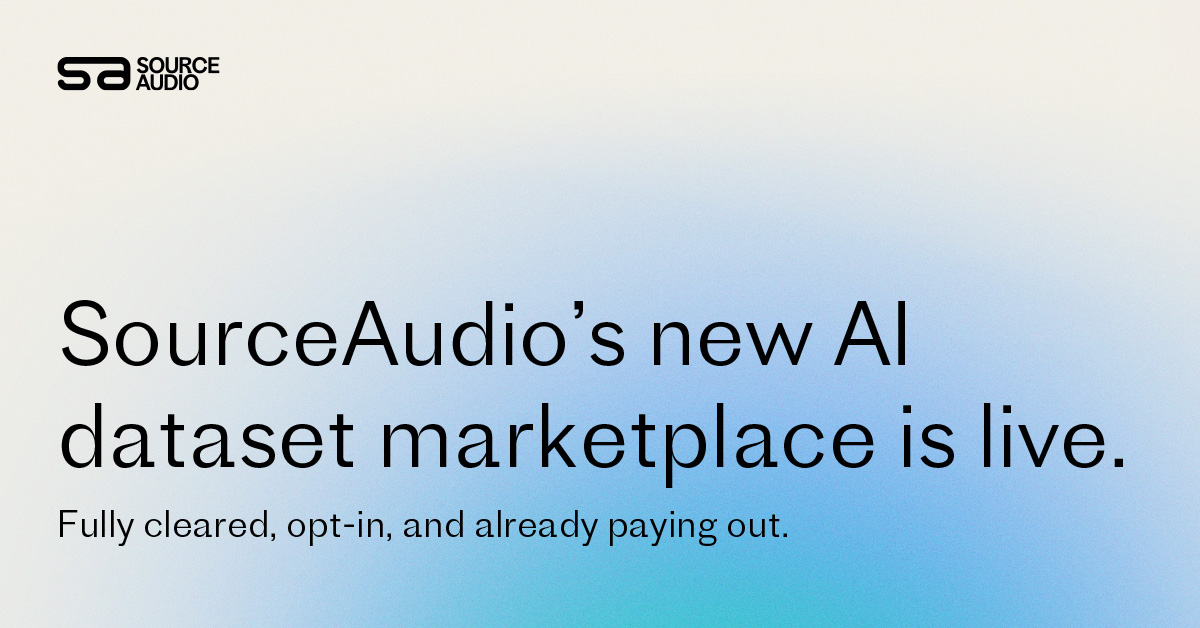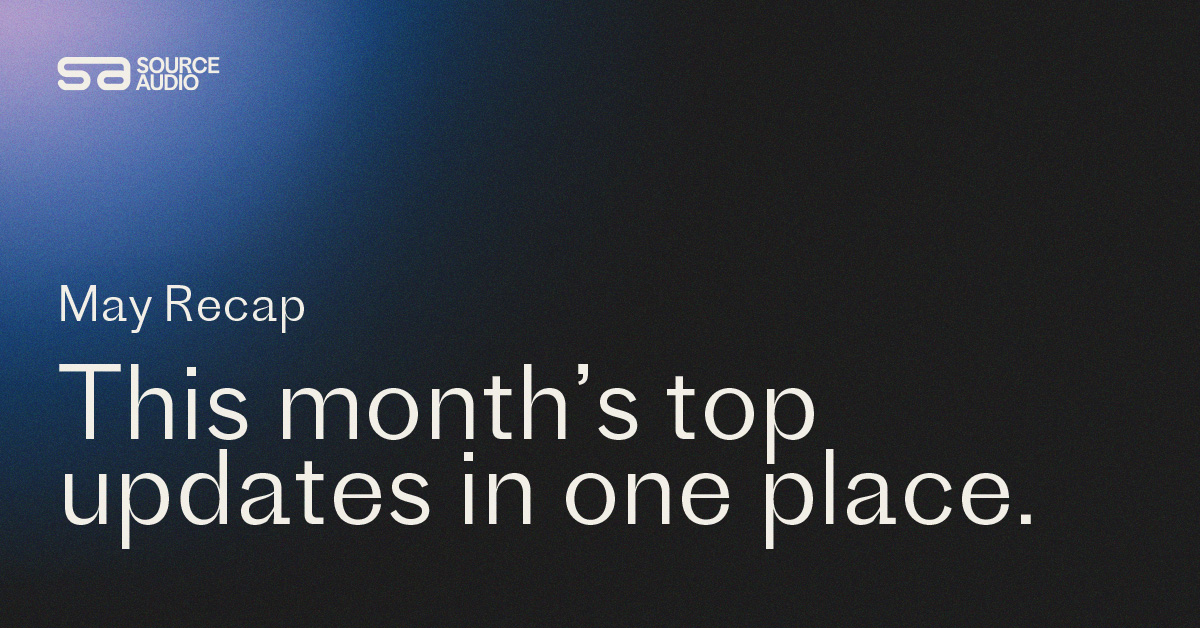Client Feature: Brian Keane Talks Innovation, Persistence, and Entrepreneurship in Multimedia Scoring
Updated February 18, 2021
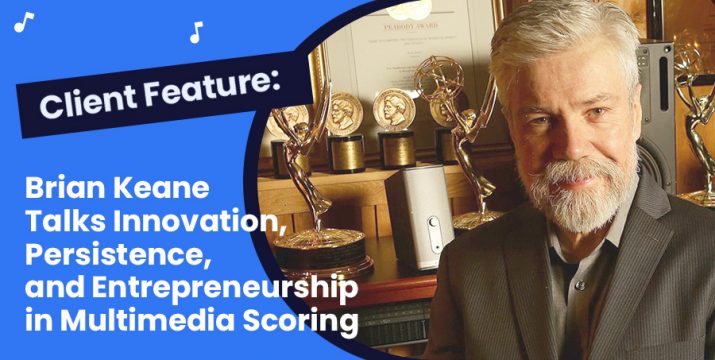
Brian Keane is a multi-award-winning composer of over 400 films, a Grammy-winning producer of over 150 records, a guitarist, mixer, and the owner of Score To Picture, a music library of award-winning compositions that has been leased by several major entertainment companies since its inception in 2015.
Breaking Into the Industry
My career in film scoring started in the late 70s when I was working as a producer in a friend’s recording studio and somebody walked in needing a band to do music for a film about taking care of your teeth! It was a small production from a husband and wife filmmaker team. I put a band together, and it was very dorky, like one of those films they make you watch as a kid when it’s raining outside.
I helped them with a few more of their original songs over the next few years, and a little while after that, the same husband and wife were on assignment in Key West, Florida, with their cameras, when the Mariel boatlift happened, which turned into an international mess between the US and Cuba. They made a film about it, being the only cameras on the spot, and when they needed music for this film they said “why don’t we hire the teeth guy?”
I did the score for it in 1980, and the film ended up getting nominated for an Academy Award.
The second film I did was maybe a year later. Then I did two films the year after that, and four the year after that, and eight the following year, and so on. There was no documentary scoring business when I started. There were only 10 channels on TV! Over the next decade, the cable business grew and grew, the documentary business grew and grew, and my reputation as a composer for documentaries grew and grew along with it.
It was a very slow slog getting started, but by the 1990s, the studios and record companies were calling me. It turned out that I was not only the most in demand composer for scoring documentaries, but these film scores turned into soundtrack opportunities, which turned into world music productions, so I became one of the leading producers of world music records.
I was producing the records, as well as writing the radio cut for the records. Plus charging for studio time as a producer, so by that time I was making money from every which way.
Thoughts on Building a Career
In my career, I’ve found that word of mouth and who you know, in combination with actually having something of real value, is how things actually work. But it takes a really long time, especially in the beginning. I made a living as a touring guitarist in those early days. Even if someone takes a chance on you and you hit it out of the park, for enough people to hear that and hire you, takes a while.
Then eventually you get to see the beauty of quality composing and long-term thinking, which is that it really does add up.
The gestation of a film career takes a while to develop, but at some point it just explodes. It gets to the point where you get so many offers you just can’t do them all. If there were ten of me I could have kept them all working for decades, and I solved that problem by hiring talented orchestrators. They would take the scenes I would write and I’d say “here use this theme for this cue and that cue.” They would orchestrate it to picture and send me a midi file back, then I would make my corrections and put it in front of the orchestra, and that’s how we accomplished high volume output when we needed to. We were a music factory for decades, operating around the clock out of an old starter home of mine that was completely dedicated to production.
I was a pioneer in the world of scoring documentaries and no one knew there was any gold in those hills, so I owned all my own publishing. I did this by making up lease agreements for my music so they could use the music for whatever they needed, but I owned it. As time went on, the bigger networks started wanting the publishing, but being in demand, all I had to say was “well if you want the publishing it’s gonna cost you more money”, and most of them, not all, but most of them said, “Nah, it’s alright you keep the publishing, we’ll take the cheaper price.” Nobody thought in the long term that any of this was going to be worth anything, they were all looking for the immediate buck. That is something that has been a reoccurring problem for the industry over the years.
Extraordinary Jobs
I remember when we did the OJ story. The slow speed car chase had just happened the night before and I got a call from ABC. They asked me to pack up my studio, which was in road cases back then, get over to ABC, and set it up in the basement of the ABC building to score the special that they were going to air the next night. Once I was there the idea was that I would score this program on the spot as they were getting the live footage from “the bird”, which is what they called the satellite.
I had just gotten in the ABC building the next morning and some AP was running down the hall past me yelling, “Word is, we’re gonna fry him! Get some creepy music going!” So this was the world that we were in, that OJ job I remember particularly well.
We finished scoring the end credits when the show was already 20 minutes into air time!
Progression in Media and Entertainment
A few years ago I was asked to score the 75th anniversary of the American Ballet Theater. They had done this sort of slow-speed high-tech film technique, which allowed them to have pristine detail at any speed. What I thought was so fascinating about it is that you could work from either direction now in an art form with visual media. Visual media is so flexible in the digital world, as is music, so you can create collaborative art that might transform what the limitations of music or dance are right now.
I think there will be new art opportunities for the creative mind through technology and lifestyle adaptations to it. Just like there was no documentary scoring business when I started, there may be new opportunities created that we don’t know of yet.
When I started in music, people would put on a record and sit in front of the stereo, blasting the music, and that was the entertainment, just listening to the nuances of the records. By the 90s, music had taken on a different role. It had been categorized so heavily that people only experienced what was marketed to them. It had also become like wallpaper for activities in people’s lives. So for a while that was my business, making that wallpaper.
When I was working at Windham Hill, the most successful records we made were when we would envision the circumstances in which it would be played, whether it was Christmas background music, or a Sunday morning, or a summer evening. Music became a whole new function in people’s lives as emotional atmosphere.
The Art of Scoring Pictures
Our role in scoring movies is about emotion too, and making people feel a certain thing. The more powerfully we can do that, the more powerfully we can affect the movie, but very often what the movie demands is not what you want as a composer. Your composer self is distracted by ego, it’s distracted by the fact that you could do something much more clever musically that would prove yourself to your musical friends or your teacher or whatever. That’s not what the film is calling for, which is, what makes the film the most powerful emotionally, (and should also be what the director is trying to achieve).
My process has always been different from most composers. I’ll look at a film once like a viewer is going to see it, and I’ll write down what the music needs to be – emotionally, thematically, supporting wise. Then I’ll discuss my ideas with the director, and make sure it fits what they’re going for. After that, I’ll write the music independent of the film. The reason why I do that is because I want the music to be strong on its own melodically, and be memorable. I want it to be as emotionally targeted as possible, and I know I have enough chops that I can bend it to the film and arrange it after the fact.
What happens then, is the really cool part. When you put your composition up against the film, there’s an element of chance, and that element of chance overrides your finite limitations of imagination as a composer. That’s when magic happens, and if you’re sensitive to when the magic happens, you can work with those magic moments and then sculpt around them, and really end up with some power. It all works because you started with the right emotional focus, the right musical focus. The final step of adapting it around the film is just a matter of technical chops.
I think it was James Taylor who said to me that composing is not too different from listening, it’s just that you’re the first person to hear it. So in that sense, what your chops do for you is they allow you to translate everything quicker and more accurately, but you have to be true to the listening, and listening for the right reasons. You have to be listening with your heart and not just your mind. You have to be listening to hear something for a specific feeling or purpose, to communicate, and not because your friends would think it would be cool as music. When you focus on these sorts of things you end up with a more powerful, musical, emotional interaction with the film you’re scoring and it’s just more memorable.
Navigating Success and Outsourcing Labor
We’ve been nominated for 20 Emmys, 6 Academy Awards, several Grammys, 9 Peabodys, and best picture of the year 18 or 20 times across various awards and categories. That makes the phone ring. The industry doesn’t know how or why we work the way we do, the directors go “I want something really cutting edge” and based on that request I could just as well give them something that’s eight years old. I ask directors to express themselves in emotional terms, not in musical terms, because there’s just less misinterpretation that way.
The people I hired on to help me with these kinds of jobs went on to have excellent careers. We would come up with certain formulas that weren’t even necessarily super innovative, but they ended up being the signature sound of things like television news documentaries, or sports documentaries. Because I was the first in many of these areas, I had the opportunity to have a lasting influence in documentary genres, and my orchestrators went on to have careers of their own as well. I even swept all the Emmy nominations for music one year.
Marketing and Entrepreneurship
I never worried about marketing. I worried about doing the best quality work, and the phone rang. When I started there were only 10 channels on television, so there was much higher competition for much bigger audiences. I scored the first primetime contemporary documentary series, called Turning Pointon ABC, and when it aired in the early 1990’s the average viewership was 30 million.
In my career, marketing was always done by large companies like Warner Brothers, BMG, or Sony. One of the unfortunate aspects of being a new composer in the digital world of internet broadcasts and streaming, is that you’re so scattered with so many chores that you are not really being paid for, including marketing and promotion.
My grandfather used to say that there’s two types of people in the world, the generalist and the specialist. The generalist knows a little about this and a little about that, and every passing year they know less and less about more and more, until eventually they know nothing about everything. Then the specialist, on the other hand, knows more and more about less and less until eventually they know everything about nothing.
It was a specialist’s world before the digital era, people hired the best in their respective fields, but once the democratization of digital technology came in and the media landscape exploded, it became a generalists world. Nowadays, composers are supposed to know how to be computer experts, be their own recording engineer, their own producers, their own promoters. It’s not a healthy environment for creating or promoting interesting new music.
The new guy needs to create whole new forms of entertainment that will engage people. Most will do better being creative about it, and not ceding that business development to a third party, or narrow commercial restrictions in which artists are neither valued, nor paid much. These days, I make at least as much from my own music library as I do from composing, and neither areas did I start out intending to be involved with.
Latest Projects
I semi-retired in 2009, but went back to work in 2012 scoring a BBC television series, Copper, for Oscar-winning director Barry Levinson for a few years. After that, in 2014, I decided to build a search system for all the music I had leased over the years, adding a bunch of new music as well for that purpose. In 2015, we signed a non-exclusive blanket deal with Disney/ESPN, among several other clients we work with. It has been very effective in generating revenue, along with royalties, and composing a few new projects here and there.
These days I think a lot about how my experience can help the next generation of artists. I also have a lot of music I would like to create regardless of commercial restriction. I could just be retired, but I still have to work to finance my creative habit. And so I do. I worked a lot in 2019, I did a series for ESPN, a European concert tour, the Susan Lacy HBO Ralph Lauren bio Very Ralph (for which the score won the Grand Award in the New York Festival awards), the critically acclaimed, theatrically released documentary Oliver Sacks: His Own Life, and I scored a movie called Driving While Black, which I didn’t even charge for, I just thought it was something necessary to do politically.
There are plenty of things that are worth putting your time into, and that’s what I’m trying to do. I’ve just tried to follow what I perceived to be God’s will, and not my own, to do my best with what I am working on, and it’s worked out pretty well. So that’s what I do. That’s my simple formula for success.
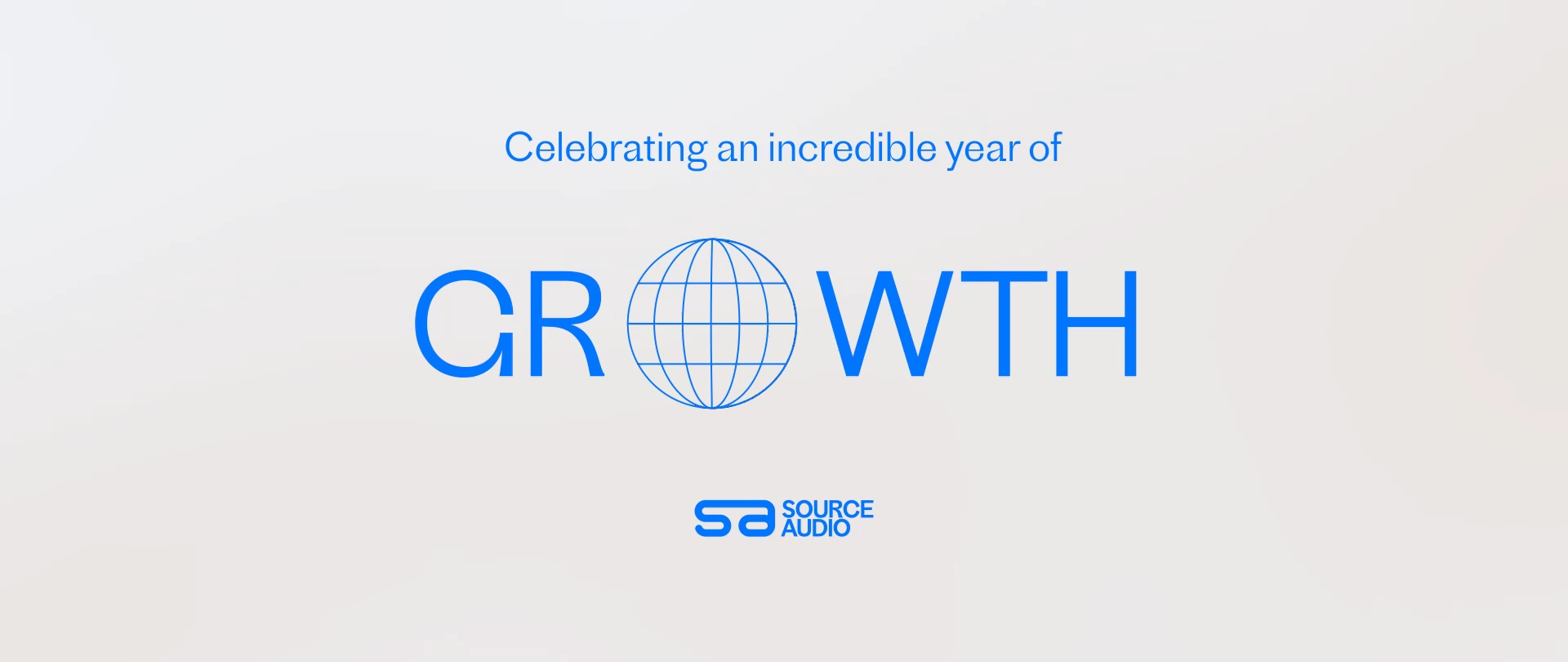
SourceAudio Celebrates Record-Breaking 2024
As we wrap up 2024, SourceAudio has solidified its position as the system of record and single source of truth for the music licensing industry. Through unprecedented growth and democratization of cutting-edge music technology tools, our p...[ READ MORE ]
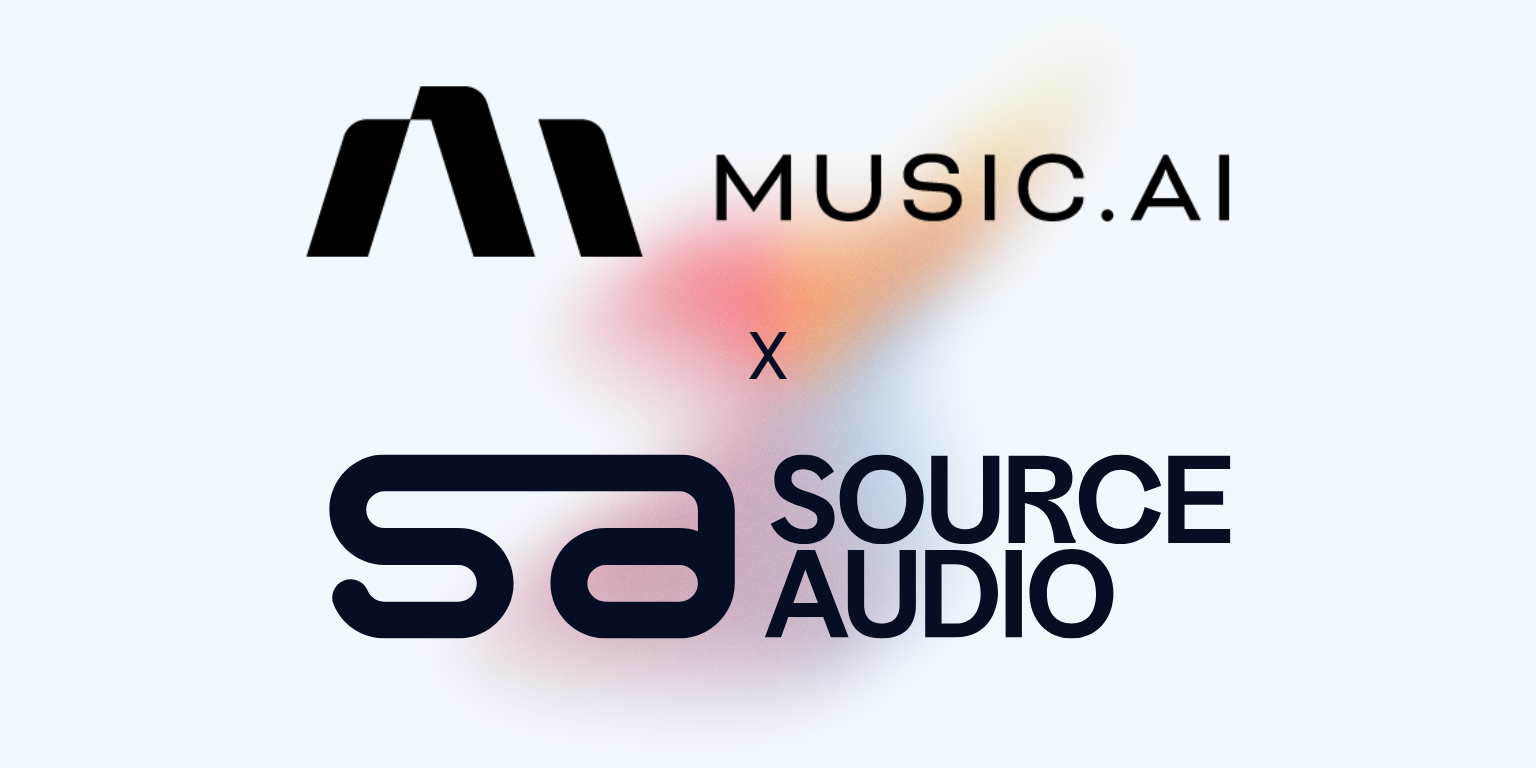
Industry-Leading Stem Separation Comes to SourceAudio
We are excited to announce our latest partnership with Music.AI, bringing groundbreaking AI-powered stem separation directly to our platform! This integration allows you to create broadcast-quality instrumentals and stems with unmatched pr...[ READ MORE ]

FREE AI METADATA – Now on All Catalog Manager Sites
Supercharge your music library with cutting-edge AI-powered metadata -- on us! Every Catalog Manager site now comes with FREE AI metadata tagging for your entire catalog. Leverage this incredible tool now, and read on to learn how it can d...[ READ MORE ]
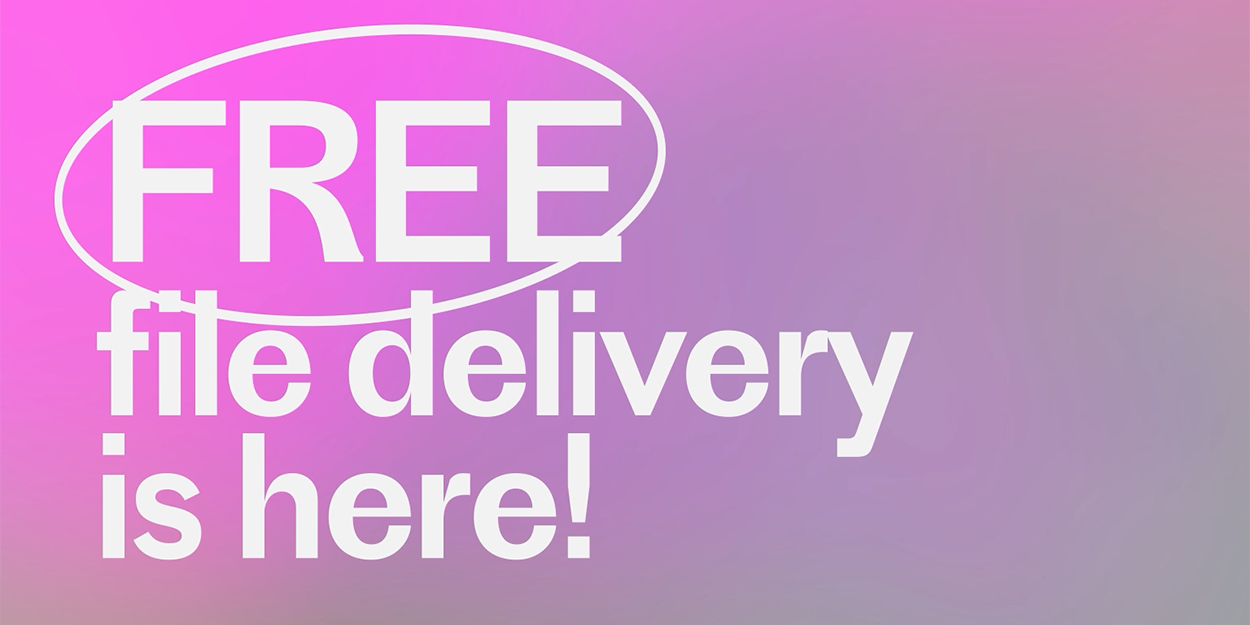
File Delivery is Now Free and Included for All Catalog Manager Sites
Every Catalog Manager site now comes with 250GB of FREE file transfer space every month – that's approximately 9,000 WAV files, every month. Not using file delivery yet? Here are 11 ways this powerful tool can supercharge your business....[ READ MORE ]

Our E-commerce Add-on Is Now Free for All Catalog Manager Sites
E-commerce is now free for everyone! In the spirit of creating as much value as possible for our community and clients, what was once a paid add-on is now free for everyone. Not using e-commerce on your SourceAudio site yet? Here are 12 way...[ READ MORE ]

